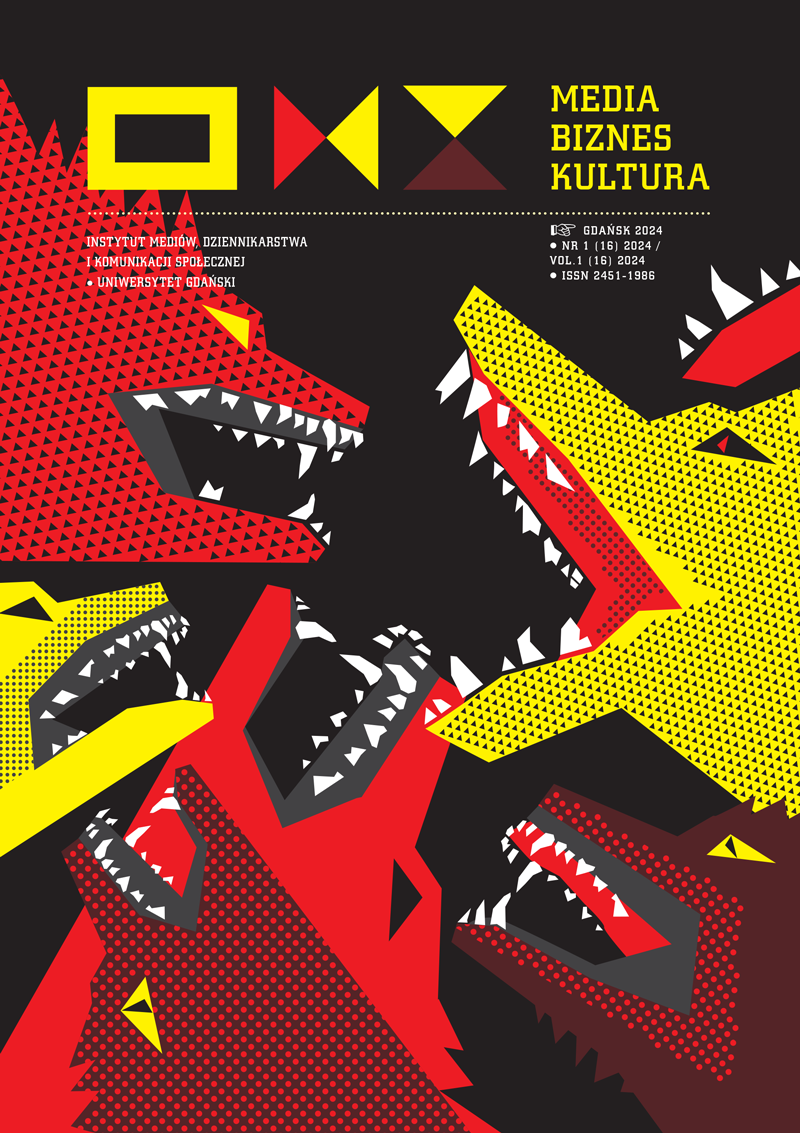Trolls as creators of disinformation. Analysis of the phenomenon
Keywords:
fake news, internet, disinformation, media, trollsAbstract
When there were only traditional media such as press, radio or television, communication was structured and predictable. The emergence of social media has not only changed us as users, but has provided completely new opportunities for communication. At the same time, unfortunately, there were threats resulting from the lack of content control, its rapid growth and the impact on the creation and distribution process, which increased the amount of disinformation. These factors have created fertile ground for trolls carrying out disinformation attacks in the form of entertainment publications or hate speech publications. Their role is to ridicule or insult, and their goal is to destabilize the discussion, mislead their interlocutors, and thus damage the good name of a person or group. The article describes the phenomenon of trolling and its relationship with disinformation, focusing on the features, behaviors and effects of such activities.
Downloads
References
Bąkowicz K., Dezinformacja. Instrukcja obsługi, CeDeWu, Warszawa 2023. Brooking E., Singer P.W., Nowy rodzaj wojny. Media społecznościowe jako broń, przeł. S. Baranowski, Vis-á-Vis/Etiuda, Kraków 2019.
Demsar V., Brace-Govan J., Jack G., Sands S., The social phenomenon of trolling: understanding the discourse and social practices of online provocation, https://www.researchgate.net/ publication/350385801_The_social_phenomenon_of_trolling_understanding_the_discourse_and_social_practices_of_online_provocation (dostęp: 26.09.2023).
Giles K., The Next Phase of Russian Information Warfare, Riga 2016, https://stratcomcoe. org/publications/the-next-phase-of-russian-information-warfare/176 (dostęp: 30.09.2023).
Jachyra D., Trollowanie – antyspołeczne zachowania w internecie, sposoby wykrywania i obrony, „Studia Informatica” 2011, nr 28, s. 253–261.
Monakhov S., Early detection of interenet trolls: Introducing an algorithm based on word pairs / single words multiple repetition ratio, „PLoS ONE” 2020, Vol. 15, Issue 8, e0236832.
Morrison S., The Rise of the Kremlin Troll, https://jmiw.uitm.edu.my/images/Journal/Vol14No2/1-The_Rise_of_the_Kremlin_Troll.pdf (dostęp: 28.09.2023).
Naruszewicz-Duchlińska A., Intencjonalne językowe zakłócenia komunikacji internetowej (trolling, flaming, hejting), „Prace Językoznawcze” 2014, nr 4, s. 89–97.
Staniurski P., Trolling, fake news, infotainment. Rola mediów społecznościowych w prowadzeniu wojny informacyjnej na przykładzie działań podejmowanych w tym obszarze przez Federację Rosyjską, https://repozytorium.uwb.edu.pl/jspui/bitstream/11320/13823/1/P_Staniurski_Trolling_fake_news_infotainment.pdf (dostęp: 20.09.2023).
Wardle C., Understanding information disorder, https://firstdraftnews.org/long-form-article/ understanding-information-disorder/ (dostęp: 19.09.2023).
Wasiuta O., Wasiuta E., Kremlowska dezinformacja w internecie i reakcja społeczeństw zachodnich, https://www.researchgate.net/publication/346788368_Kremlowska_dezinformacja_w_Internecie_i_reakcja_spoleczenstw_zachodnich (dostęp: 1.10.2023).
Węgrzyn R., Kuś J., Geneza popularności „cyfrowych bachanaliów” a fenomen trollingu internetowego z perspektywy psychologicznej, https://www.researchgate.net/publication/343046042_Geneza_popularnosci_cyfrowych_bachanaliow_a_fenomen_trollingu_internetowego_z_perspektywy_psychologicznej (dostęp: 25.09.2023).
What is a troll?, Indiana University: University Information Technology Services, Indiana University Knowledge Base, The Trustees of Indiana University 2008.
Xavier S., Impact of Trolling and Its Effects on the Popularity of social media, „International Journal of Scientific Development and Research” 2022, Vol. 7, Issue 8, s. 760–768, https:// www.ijsdr.org/papers/IJSDR2208113.pdf (dostęp: 25.09.2023)

 Academic Scientific Journals
Academic Scientific Journals




